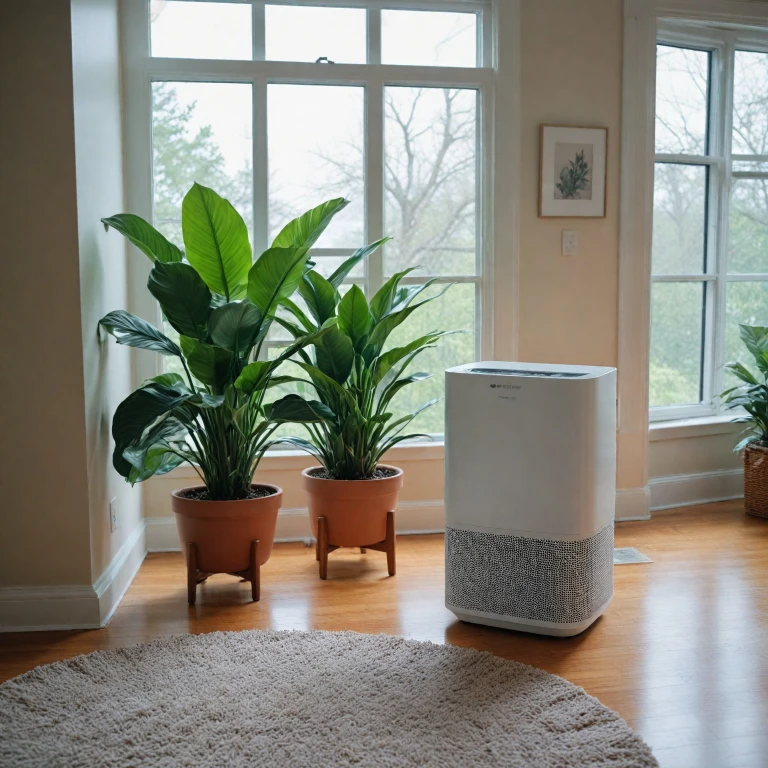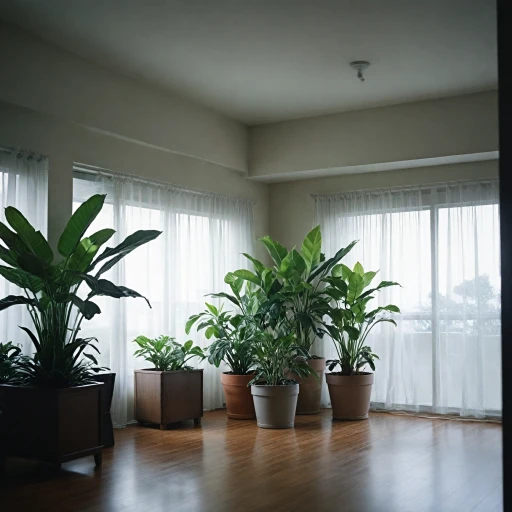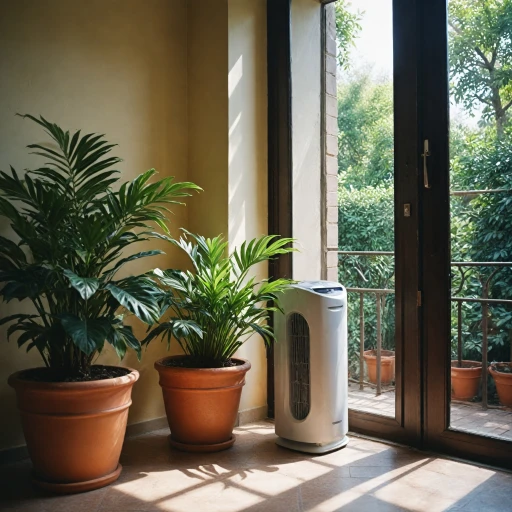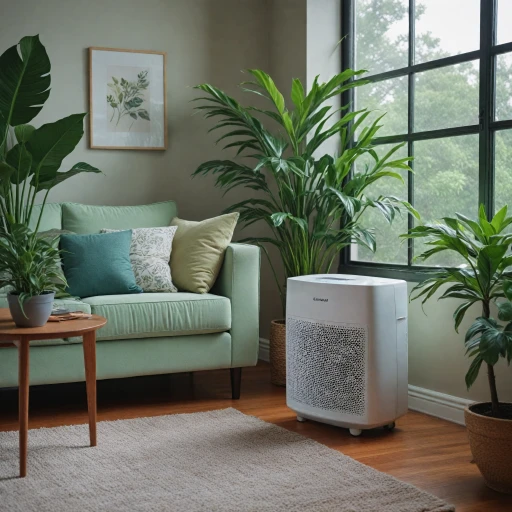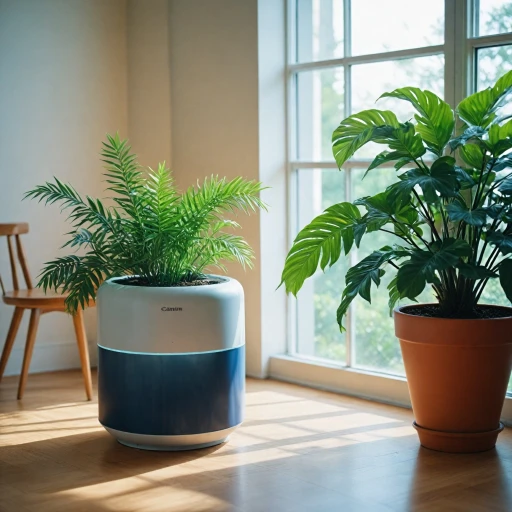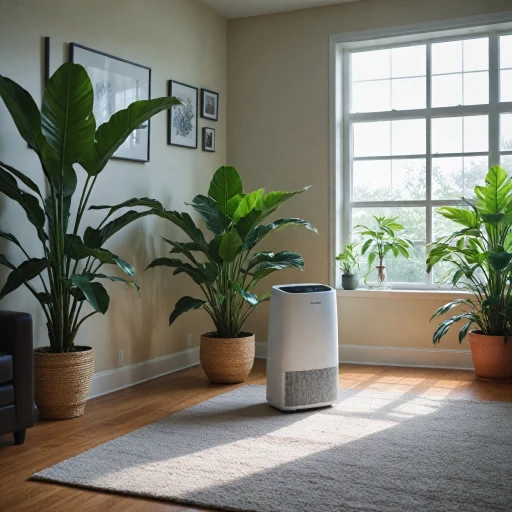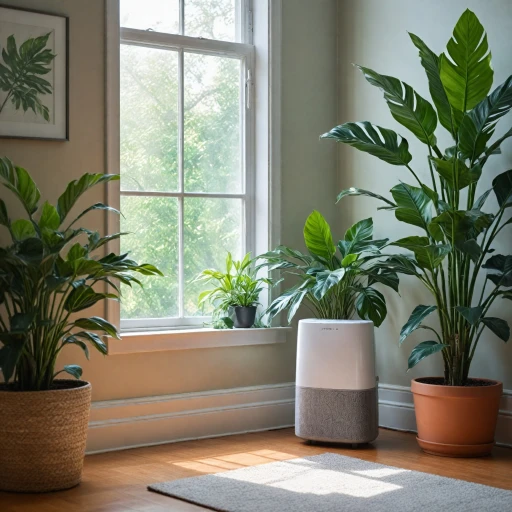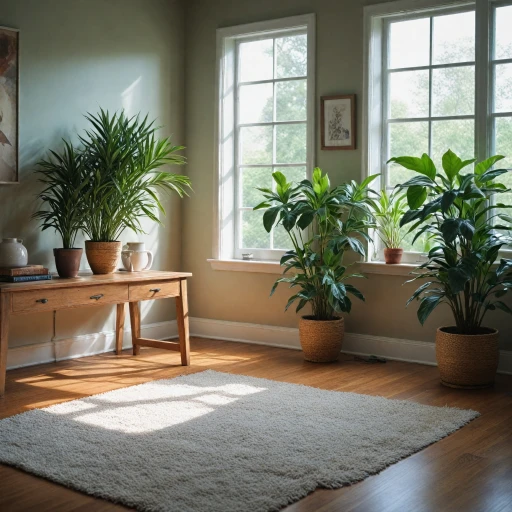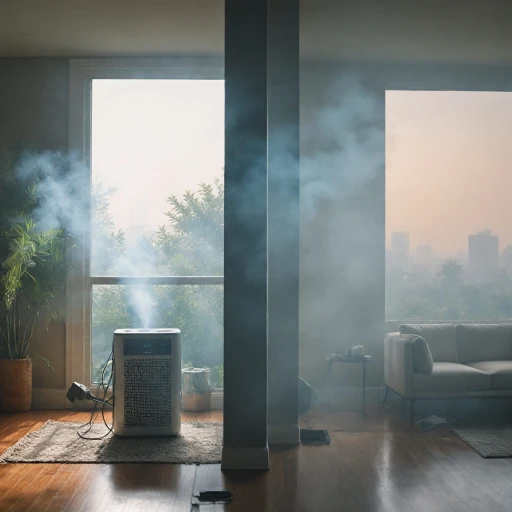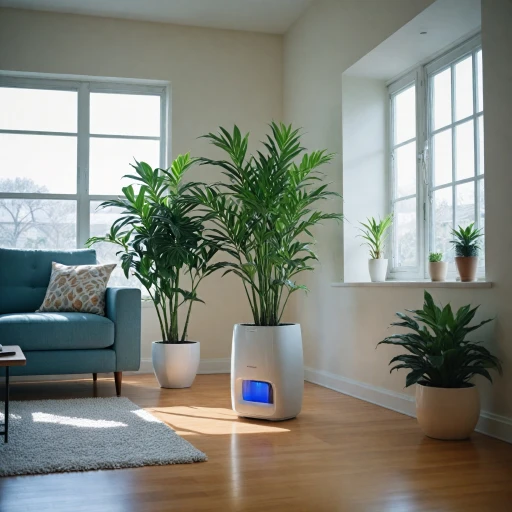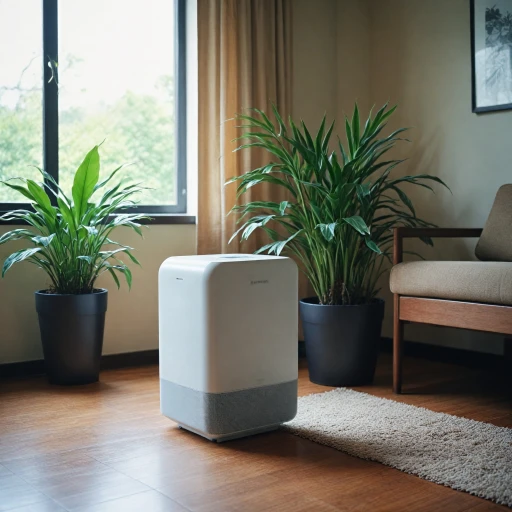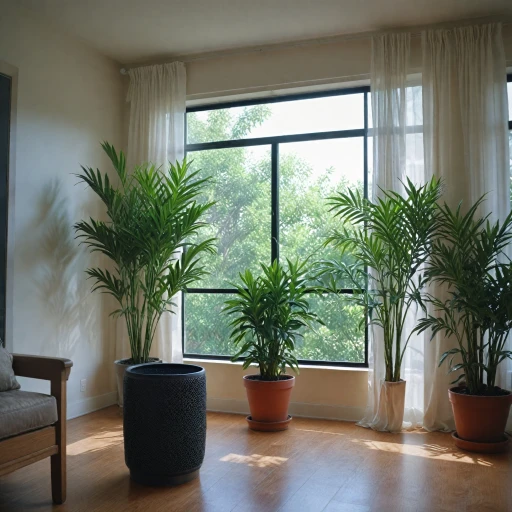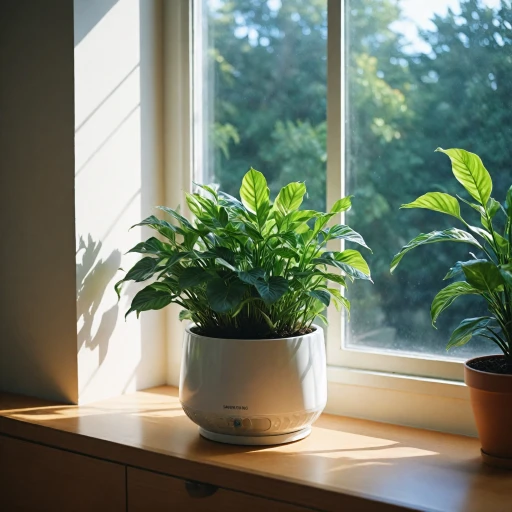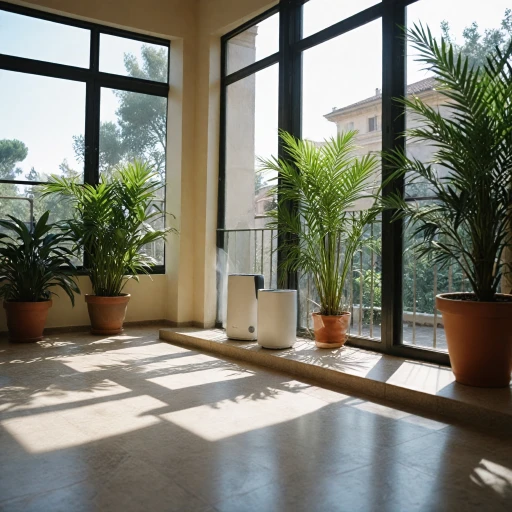
What is a HEPA H13 Filter?
Defining the Advanced HEPA H13 Filter
When it comes to air purifiers, the term HEPA H13 might often arise in discussions about high-efficiency air filtration. As a true medical-grade filter, the HEPA H13 plays a crucial role in capturing pollutants and enhancing air quality within various environments. But what exactly distinguishes this filter from others?
The HEPA H13 filter is a variant of the certified HEPA filters, known for its superior ability to trap minute particles. Unlike regular filtration systems, HEPA H13 filters offer an impressive capability to capture at least 99.95% of airborne particles of sizes as small as 0.1 microns. This capacity makes them compatible with a diverse range of air purifiers, ensuring effective removal of dust, pollen, pet dander, and other allergens from the air.
What sets the HEPA H13 apart is its composition. Made from high-quality materials, these filters are designed to handle larger rooms and more significant concentrations of pollutants. They provide a robust barrier against harmful particulates, offering a level of filtration that aligns with medical-grade standards.
For those keen on exploring options compatible with different environments, HEPA H13 filters present a reliable solution for maintaining high air quality. Whether for homes, offices, or healthcare settings, these true HEPA filters earn their place among preferred purifier filters for their efficiency and adaptability.
To learn more about how to select the most suitable air purifier for your needs, consider exploring other certified filters that complement your lifestyle and requirements here.
How HEPA H13 Filters Improve Air Quality
Enhancing Your Living Environment with HEPA H13 Advantages
HEPA H13 filters stand out as an integral component in improving air quality within any environment. These filters are designed to capture at least 99.95% of particles that are 0.1 microns in diameter, efficiently trapping dust, pollen, pet dander, and other allergens. This high efficiency makes them a staple in medical-grade air purifiers, well-suited for both residential and commercial spaces.
The certified filtration of HEPA H13 filters offers significant advantages over standard air filters. With true HEPA performance, they ensure cleaner air, providing relief to those with allergies or respiratory conditions by minimizing exposure to airborne pollutants. The compatibility of HEPA H13 filters with various purifier options allows users to incorporate them into diverse settings, from small rooms to large environments.
For those keen to learn more about how filtration systems like these can enhance air quality, exploring the benefits of electrostatic air filters can provide additional insight.
Incorporating a true HEPA filter into your air purifier product ensures the highest level of air filtration, effectively combating microscopic contaminants while offering peace of mind concerning indoor air quality.
Applications of HEPA H13 Filters
Enhancing Various Environments
The versatility of HEPA H13 filters makes them integral in a wide range of settings. From homes to industrial spaces, these filters are designed to tackle diverse air quality challenges efficiently. Whether it's the comfort of a living room, the calm of an office environment, or the sterility of a medical-grade facility, the HEPA H13 offers true filtration harmony. In domestic settings, especially in large rooms where dust, pet dander, and pollen are prevalent, a certified filter like the HEPA H13 is invaluable. Homeowners can effectively maintain a higher air quality, ensuring healthier breathing environments for their families and guests. For those with allergic sensitivities or respiratory issues, integrating a compatible air filtration system can significantly improve their daily experiences. Medical facilities also rely heavily on these high-efficiency filters to uphold stringent air standards. The precision of a HEPA H13, with its ability to capture extremely tiny particles, helps in minimizing contamination risks while promoting a cleaner atmosphere essential for patient safety and recovery. Commercial establishments, from bustling offices to expansive factories, benefit from their ability to manage dust and airborne particulates efficiently. High traffic and frequent HVAC system usage often lead to the circulation of pollutants, a challenge effectively countered by robust air purifiers equipped with HEPA H13 filters. Moreover, learning about the various options available for HEPA air filters can lead one to explore enhance your home with complementary products that not only clean the air but offer added benefits like pleasant scents, adding a new dimension to air purification.Comparing HEPA H13 with Other Filter Types
Distinguishing HEPA H13 from Other Filtration Systems
When it comes to air purifiers, making an informed choice requires understanding the differences between filter types. HEPA H13 filters stand out as they offer high-grade filtration that is often synonymous with medical grade standards. Here’s how they compare with other options available for improving air quality.- Efficiency and Filtration Capability
- HEPA H13 Filters: True to their high efficiency, these filters can capture up to 99.95% of airborne particles, including dust, pollen, and pet dander. This makes them compatible with environments requiring exceptional air filtration, like medical facilities or large room spaces.
- Standard HEPA Filters: While also effective, traditional HEPA filters capture a slightly lesser percentage of particles than their H13 counterparts, generally around 99.97% down to the 0.3-micron size.
- Carbon Filters: Often used for absorbing odors and gases, carbon filters don’t catch small particulate matter like dust and pollen as efficiently as HEPA filters but are excellent complementary components in a purifier.
- Material and Quality Differences
- HEPA H13 filters are composed of robust and high-quality materials designed for extensive filtration without frequent replacement needs, offering certified performance.
- Lesser known or non-certified filters may not provide the same consistency in air quality improvement and might require more frequent replacement, reducing their long-term cost effectiveness.
- Applications and Usage
- HEPA H13's high-grade performance makes these filters the preferred choice in certified air purifiers used in sensitive environments where maintaining optimal air quality is crucial.
- Standard HEPA and other filter types can be sufficient for general household use but might not be adequate for areas exposed to higher levels of pollutants.
Maintenance and Longevity of HEPA H13 Filters
Maintaining and Prolonging the Life of Your HEPA H13 Filter
Ensuring the optimal performance and longevity of the HEPA H13 air filter is vital for maintaining high efficiency and air quality in your space. Regular maintenance is key to achieving the medical-grade air filtration these filters promise. Here’s how you can effectively maintain your HEPA filters:
- Regular Cleaning: Though HEPA H13 filters are not washable, you can gently vacuum the external surface to remove accumulated dust and pollen. This helps maintain the air purification efficacy without damaging the filter.
- Filter Replacement: Certified replacement filters should be used for optimal performance. It's crucial to follow the manufacturer's guidelines for when to change your purifier filter. Usually, this is every 12-18 months, but it can vary depending on the environment and usage.
- Purchase Quality Products: Opt for true HEPA air filters that meet the H13 grade standards. They should be compatible with your specific air purifier model to ensure a snug fit and effective air filtration.
- Pay Attention to Warnings: Many HEPA air purifiers come with indicators or alerts that notify you when it’s time to replace the filter. Respond promptly to these warnings to continue filtering dust, pet dander, and other pollutants effectively.
- Consider Your Environment: In a large room or spaces with high levels of pollutants (like smoke, pollen pet hair, or dust), the filters might need more frequent replacement.
By following these maintenance guidelines and selecting the right purifiers and replacement options, you can ensure a cleaner, healthier environment with sustained air quality standards. Keep learning and staying informed about filter technology advancements to choose the ideal products for your needs.
Choosing the Right Air Purifier with HEPA H13 Filter
Finding the Ideal Air Purifier with HEPA H13 Technology
When selecting an air purifier equipped with a HEPA H13 filter, it's essential to consider a few key factors to ensure optimal air quality improvement. Recognized for their high efficiency in capturing particles such as dust, pollen, and pet dander, HEPA H13 filters are a top choice for a cleaner indoor environment.
Considerations for Your Environment
- Room Size Compatibility: Look for air purifiers that specify effective coverage for your room's size. Large room air filters require purifiers capable of handling significant square footage to maintain proper air filtration.
- Air Quality Enhancement Needs: Identify the main pollutants you aim to eliminate; whether it’s dust, pollen, or pet dander, ensure that the purifier is certified to tackle these components effectively.
Understanding True HEPA Specifications
- High Efficiency: 'True HEPA' means that the filter can capture at least 99.97% of particles as small as 0.3 microns, which encompasses many common allergens and airborne pollutants. Confirm that your chosen air purifier features a true HEPA filter for guaranteed quality.
- Medical Grade Filters: Explore medical-grade options if you require a more robust filtration system, crucial for individuals with severe allergies or respiratory conditions. These products offer enhanced filtration effectiveness.
Consider Replacement and Maintenance
- Replacement Filter Availability: Check the availability and cost of replacement filters before purchasing. Regularly replacing HEPA filters is critical to the longevity and performance of the air purifier.
- Materials and Build Quality: Durable materials contribute to the purifier's lifespan. Additionally, some models offer additional certifications for air filtration standards, further warranting their effectiveness.
By thoroughly evaluating these factors, one can confidently select an air purifier with a HEPA H13 filter that offers high-quality air filtration, ultimately creating a healthier living space.

